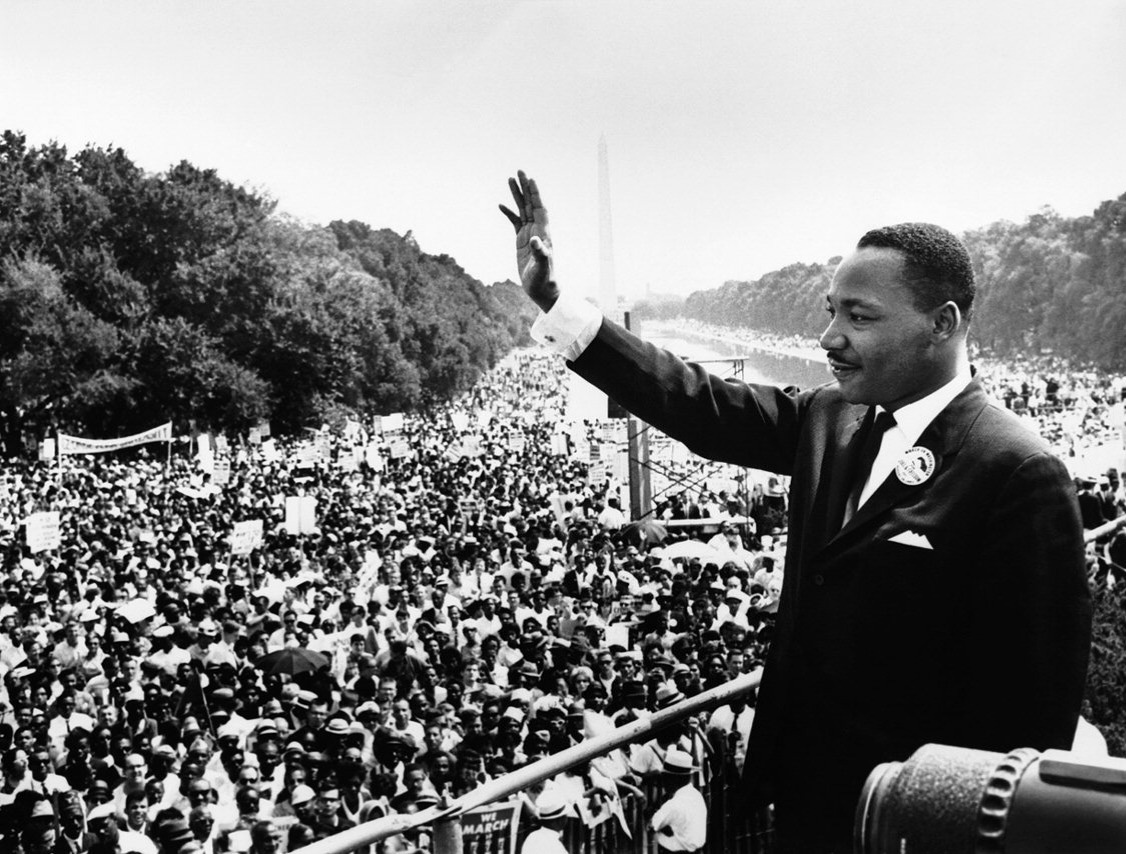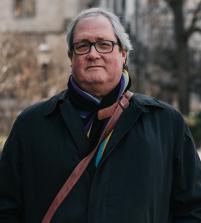Rev. Dr. Martin Luther King Jr. and American Civil Religion
Civil religion in America
 Over the years, several Sightings authors have cited Robert Bellah’s justly famous essay, “Civil Religion in America,” which was published in 1967. A natural point of reference for a publication that aims to identify and characterize the places of religion in public life, Bellah argues that there has been, is, and inevitably will be in America an articulation of ethical principles which transcend their specific national contexts to afford the standard by which the nation and its behavior are and should be judged. Bellah argues both that all nations have such a “religious self-understanding” and that—contrary to some of his critics who feared he was advocating something other than “the separation of church and state”—its recognition and its analysis afford the surest bulwark against national idolatry.
Over the years, several Sightings authors have cited Robert Bellah’s justly famous essay, “Civil Religion in America,” which was published in 1967. A natural point of reference for a publication that aims to identify and characterize the places of religion in public life, Bellah argues that there has been, is, and inevitably will be in America an articulation of ethical principles which transcend their specific national contexts to afford the standard by which the nation and its behavior are and should be judged. Bellah argues both that all nations have such a “religious self-understanding” and that—contrary to some of his critics who feared he was advocating something other than “the separation of church and state”—its recognition and its analysis afford the surest bulwark against national idolatry.
Bellah unfolds this thesis in the essay’s opening section via reference to the presidency of John F. Kennedy. Kennedy’s Catholicism, a serious concern for many Americans during the 1960 presidential campaign, was seemingly belied by his Presidency, which articulated classic principles hearkening back to the nation’s founders.
Less often remarked on, however, is the ensuing structural arrangement of Bellah’s essay, which identifies three moments in American history when the nation’s civil religion was tested. First, at its founding (“The Idea of Civil Religion”), where he focuses on how the fledgling nation embraced in its constitution the classic deistic sensibility which abjured privileging any specific religious association while affirming both belief in God and the concomitant conviction that God’s will can and ought to be reflected in the nation’s politics. Second, in the mid-nineteenth century (“Civil War and Civil Religion”), where the legacy and future disposition of the practice of slavery resulted in war, the Emancipation Proclamation, and the Fourteenth Amendment to the Constitution. Third, the moment in which Bellah wrote the essay, the late 1960s (“The Civil Religion Today”), where the question of America’s proper role in international politics—specifically the distribution of wealth and democratic ideals—came to the fore.
Entirely unnoted, so far as I am aware, is the fact that in his conclusion Bellah identifies each of these as moments of trial. “Trial” can be understood to be a matter of public adjudication or of personal ordeal; often it is both. Bellah’s three trials are at once national dilemmas for adjudication and personified in an individual’s personal ordeal. Thus, in Bellah’s framing of the narrative, national questions of divine authorization independent of specific religious affiliation are reflected in the figure of Benjamin Franklin, the issue of slavery during the presidency of Abraham Lincoln, and the matter of responsible action “in a revolutionary world” in the writings of Reinhold Niebuhr.
Bellah’s conception of the trials of civil religion—when fully developed—seems especially apposite to this national holiday on which we recall the life and legacy of the Rev. Dr. Martin Luther King Jr. The matter of civil rights was for Dr. King a question of the utmost import both for the life of the nation and for him as a citizen and as a human being. As with Franklin, Lincoln, and Niebuhr, the macro- and micro-levels intersected. King’s great virtue was to marshal dual, indeed simultaneous, address to civil rights as a problem of the nation and a problem for its individual citizens. His words address at once the better angels of the nation’s nature and the ironies of the nation’s decision to spend money on bombs to wreak havoc on Hanoi rather than provide food and shelter to the nation’s needy. If King was resonant in this respect with Lincoln and Niebuhr, he did not neglect Franklin’s capacity for principled compromise, the willingness to take progress where it was to be gotten in the name of moving forward.
It is impossible to listen to recordings of King, whether in 1963 on the steps of the Lincoln Memorial or on the eve of his assassination in 1968 in Memphis, without discerning a visceral sense of the personal ordeal of pressing forward with the cause. What was at stake for the nation was manifestly at stake for Dr. King. On Bellah’s terms, to memorialize Dr. King is to memorialize the standard by which we exist, and by which we should be judged. If America does indeed have a civil religion, we should remember Dr. King as its foremost practitioner.
King’s trials, both his personal ordeals and his calls to justice for his nation, may fit well with Bellah’s rubric of civil religion, but they fit less well within the sequence of “moments of trial” that Bellah articulates for America. To quote an earlier Sightings columnist, John Howell, on events in Charlottesville, Virginia: “The war came again.” It is, at minimum, unclear that the nation has overcome the trial of slavery and, at maximum, that the nation faces not so much a series of trials as one constant demand to be, in the fullest sense of that term, “We the people.” Dr. King’s vision of civil rights, which we commemorate on this annual holiday of civil religion in America, asks nothing less than that we strive constantly to consult the will of all the people.
Image: Martin Luther King Jr. addresses a crowd from the steps of the Lincoln Memorial, where he delivered his famous “I Have a Dream” speech during the "March on Washington," on August 28, 1963. (Photo courtesy of Wikimedia Commons)


